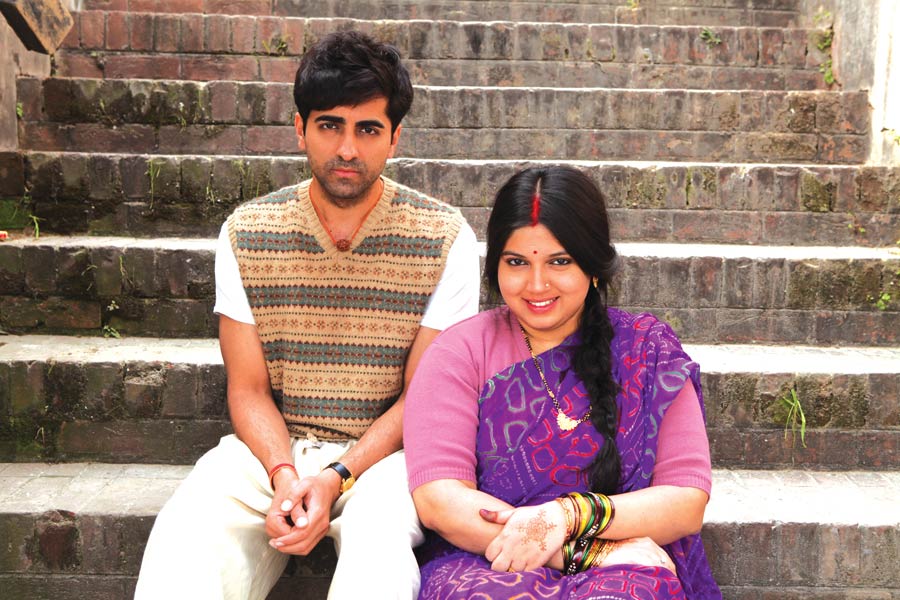I still meet many, many men and women who seem quite comfortable being the size or shape they are because it is often acceptable in our society to be so. It is customary for a man to have a big belly in his thirties. It is quite acceptable for women to remain several kilos overweight after her pregnancy and delivery. Mothers-in-law discourage exercise and encourage the consumption of unnecessarily calorie-laden foods ‘for the baby.’ Women over the age of forty are tolerant of their weight gain and poor fitness levels and consider it a natural part of the aging process. While it is heartening that we are more accepting of diverse body shapes, it is to our detriment that we are unconcerned and even comfortable with being over weight and/or unfit.

At the other end of the spectrum are women who are preoccupied, almost obsessed with their shape, size and weight. Those who exercise fanatically are constantly on one starvation diet after another.
How does one find the happy balance between the two extremes? Where does one draw the line and learn to say, firstly: “This is my body and I need to decide what is good for it or how it should look.”
It is not okay to accumulate abdominal fat; we find huge amounts of it, even in young people.
Here are some thoughts:
- It is not okay to accumulate abdominal fat the way we do. We find huge amounts of it, even in young people.
- It is not okay that we have one of the highest (or THE highest) statistics for Diabetes in the world!
- It is not okay that we are so sedentary and unfit.
- It is not okay that younger people are being diagnosed with heart attacks, diabetes and hypertension.
- It is certainly not okay that we have changed our food habits to happily embrace the western diet, and eat both processed and fast food and have forgotten simple cooking methods to consume fresh food.
- It is not okay that young people are choosing to be sedentary both in their jobs and at home. The computer and television have become our constant companions.
- It is not okay that jobs encourage sedentary behaviour with absolutely no guidance and leadership from the top level management to encourage employees to exercise regularly. In essence, with no concern for the health of the individual employees.
- It is also not okay that young people who are obsessed with their figures try to lose weight rapidly employing bizarre and unscientific methods with no respect whatsoever for their bodies.
- We have several gyms and fitness centres. In fact, one sprouts up at every street corner every day. My concern is, how good are they? How qualified are the trainers? Are they teaching scientific principles of fitness or are these places also glorified beauty parlours/centres that encourage only rapid weight loss for cosmetic reasons and that too by, using unhealthy practices. Do they sell supplements, weight loss gimmicks and protein powders indiscriminately? Are they genuinely concerned about the client’s health?
“You have put on weight”; “you have lost colour”; “you are looking tired because you have lost weight” are extremely common, personal comments that people feel free to pass on meeting others, even those not necessarily close. Apart from being extremely rude, this could prove terribly disturbing for some women. Such talk often influences what people, particularly women, think and feel about their own body and how much they respect it.
A woman may decide, for instance, that she is completely comfortable being slightly overweight but continue to exercise and eat healthy for the most part. That is her choice. It should also be her choice to want to lose that extra weight and opt to start a different exercise programme at a certain point in her life. Often however she is not free to make these choices. Uncalled for advice is abundant from well-meaning family, friends and complete strangers telling her she is ‘just fine as she is,’ or ‘she is exercising too much,’ or ‘she shouldn’t lose any more weight.’
It is important to be free from undue influence of others when it comes to your physical body. When you have sole privilege over your own body there is a great sense of liberation. With this privilege, however, comes a responsibility. The responsibility of taking care of that body. Respecting it and treating it with kindness. This would include eating healthy, exercising regularly, taking it for regular health screening, avoiding being overly critical of it, respecting and considering what it feels and thinks. This also includes being respectful of your current physical state even if you intend to change it.
Starting a fitness programme with the thought, “I hate my body, my fat thighs, my tummy” etc. is putting unjustified pressure on yourself. Begin with some reverence for the current body, whatever its state. That body has served you this long and the chances of successfully improving it are that much greater when you set about it by loving your body first.
(The writer is author of the book Get Size Wise, and a fitness and lifestyle consultant. She can be contacted at sheela.nambiar@gmail.com)
A woman should have a right to her own body
How a woman looks and chooses to look should be entirely her prerogative. Who is anyone else to challenge that? Unfortunately, we find that this is not always her choice. In the sense that women are constantly inundated with advice and information from all quarters on how they ought to look. And such advice is given with total disregard to her health status. Besides the false advertising and slimming aids, family and friends seem to be terribly invested in a woman’s appearance.






